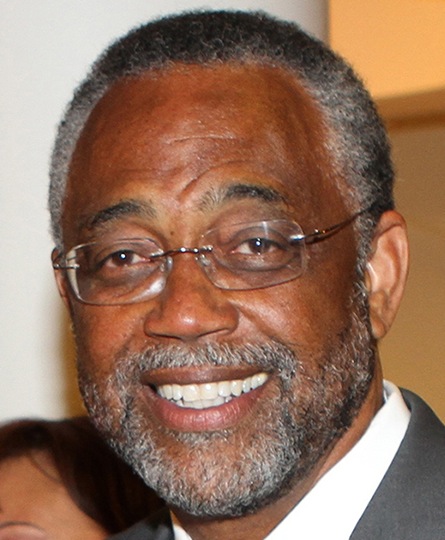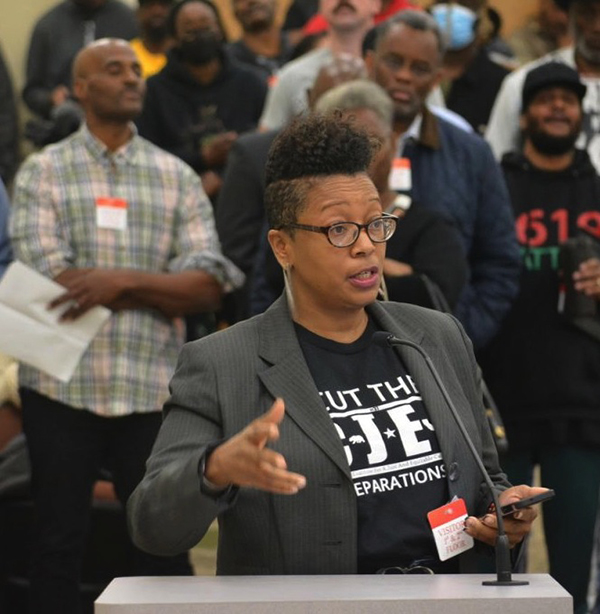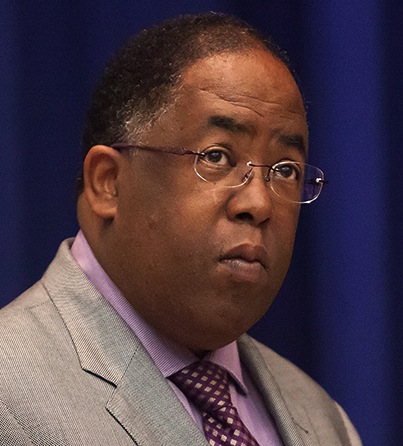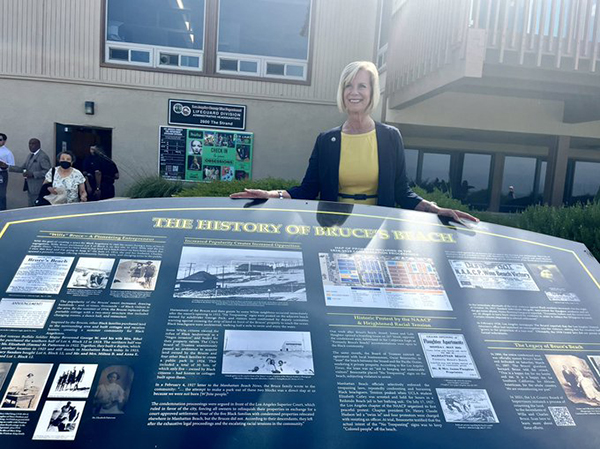By Darlene Donloe, Contributing Writer
SOUTH LOS ANGELES — When Moza Mjasiri Cooper learned that City Councilman Curren Price had filed a motion at a recent City Council meeting calling for the city to establish June 19, or Juneteenth, as an official city holiday, the community activist who annually produces Juneteenth heritage festivals was ecstatic.
“I thought to myself, ‘How wonderful,’” said Cooper, the founder of Black Arts Los Angeles. “I was so happy. How wonderful it would be if everyone recognized and celebrated one of the most important days in history for Black people.”
Cooper should be more than pleased after the Los Angeles City Council voted unanimously Aug. 25 to initiate the process of making Juneteenth an official city holiday to celebrate the end of slavery in the United States.
Cooper said she has been looking forward to there being a citywide Juneteenth celebration for years.
“I remember talking with Curren Price a long time ago when he was in the state Assembly,” said Cooper. “For him to pick up the baton and run with it is wonderful. I know he believes in it. He, Herb Wesson and Bernard Parks have always been supportive. This is great news. My heart is full.”
Price and council colleagues Herb Wesson and Marqueece Harris-Dawson filed the initial motion to make Juneteenth an official city holiday.
“For myself and nearly a half million Black Angelenos that call L.A. home, we understand the significance and we recognize the value and the cultural impact that Juneteenth has,” Price said.
Price said recent demonstrations to demand racial equity and justice in the country and to protest the killings of Black Americans at the hands of police heightened his desire to commemorate, celebrate and acknowledge the historical significance of Juneteenth.
“I did not learn about Juneteenth formally in school,” Price said.
“This is a moment to honor our ancestors who were separated, subjected to harsh and inhumane treatment, as they were forced to perform backbreaking labor, deprived of an education and were subjected to countless acts of violence against them.”
On June 19, 1865, two and a half years after President Abraham Lincoln’s historic Emancipation Proclamation in 1863, U.S. Maj. Gen. Gordon Granger issued General Order No. 3, which informed the people of Texas that all enslaved people were now free.
The day has affectionately been called Juneteenth and has also been referred to as Freedom Day, Jubilee Day, and Black Independence Day.
In 2003, the California State Legislature officially recognized Juneteenth as a ceremonial holiday, but not a paid state holiday.
For 11 years, Cooper’s group, Black Arts Los Angeles, has been coordinating Juneteenth Heritage Festivals in Leimert Park and Pomona. This year was no different.
In Pomona on June 19, there were 400 masked supporters and activists who participated in a four-mile march from the African American Museum of Beginnings to the Juneteenth monument at Ganesha Park.
There were no vendors, only music and speeches.
“It was a consciousness movement,” said Cooper, who had initially thought to cancel this year’s two-day festival. “With everything going on, Tony (Jolly) who works with us, thought it was too important to cancel, especially this year.”
With a backdrop of civil unrest brought on by the televised death of George Floyd, who died after being handcuffed and pinned to the ground by the neck by a white Minneapolis police officer, as well as the law enforcement killings of numerous Blacks, including Breonna Taylor, and despite a nationwide pandemic, thousands of masked protestors, activists and everyday citizens poured into Leimert Park Village on Juneteenth to have their voices heard.
“It was about a movement,” said Cooper, who produces Artwalk at the Plaza for the Baldwin Hills Crenshaw Plaza. “It was about unity. The festivals have been a huge success. We’ve been able to inform and educate people on Juneteenth. Some people, including some Black people, had never heard of Juneteenth before. A festival is a great way to distribute information.”
Cooper said each year she and her Black Arts Los Angeles advisory committee of Erica Phillips, Gail Jennings, Melba Carter, Mankaa Fokwa, LaSandra Stratton, Muna Williams, Sabah Mjasiri and Amani Terrell, try to “create something to make people want to come out and learn about history.”
Pre-COVID-19, the festivals included a variety of vendors sharing information on technology, history, health, fashion, food, face-painting, magic, musical entertainment, and other fun activities.
“With Curren Price’s motion, that means the entire city of LA could celebrate the significance of Juneteenth,” said Cooper, who lives in Baldwin Hills. “This is big.”
Asked about the motion, Price said in an earlier interview that, “This is a teaching moment, one to raise awareness and share our values and traditions with the world.”
“Juneteenth represents not only the ending of slavery but the beginning of Black people knocking down barriers,” Price said. “At this point in our culture, we need to do everything in our power to educate one another about things left our of the history books, demonstrate inclusion, and celebrate our progress keeping in mind that we have a lot more work to do.”
Several other elected officials are on board with the motion.
Sen. Kamala Harris, now the Democratic vice-presidential nominee, announced in June that she would propose a bill that declares Juneteenth a national holiday.
The bill would make Juneteenth the first addition to the list of U.S. federal holidays since Martin Luther King Jr. Day was approved in 1983.
In a released statement Sen. Harris said, “Juneteenth is a day to remember the millions who died from enslavement in America and those who survive and fought to end it.”
“When I heard Kamala Harris was also recognizing the importance of Juneteenth, I started clapping because I was so elated,” Cooper said. “When it happens, I will be happy that I’m living in America. It is acknowledgement that slavery took place.
“Being a Black woman who wasn’t born here, I believe having a Juneteenth official holiday will bring awareness to those who don’t know about it. I’m from Africa and I’ve lived in London. People in Africa and London didn’t know about Juneteenth. A citywide holiday will open it up for Angelenos who did not know about Juneteenth. Everyone needs to know about its significance.”
The motion Price introduced would instruct city staff and the Civil and Human Rights Commission to report on the historic importance and cultural influence of Juneteenth and provide possibilities for establishing it as a city holiday.
Price’s proposal has no timetable to make its way through City Hall. City staff will come up with recommendations and report back to the City Council with additional information on establishing Juneteenth as an official holiday.
Ultimately, Cooper said, she hopes to establish long-term partnerships with sponsor entities to secure the perpetuation of the Juneteenth Festival.












